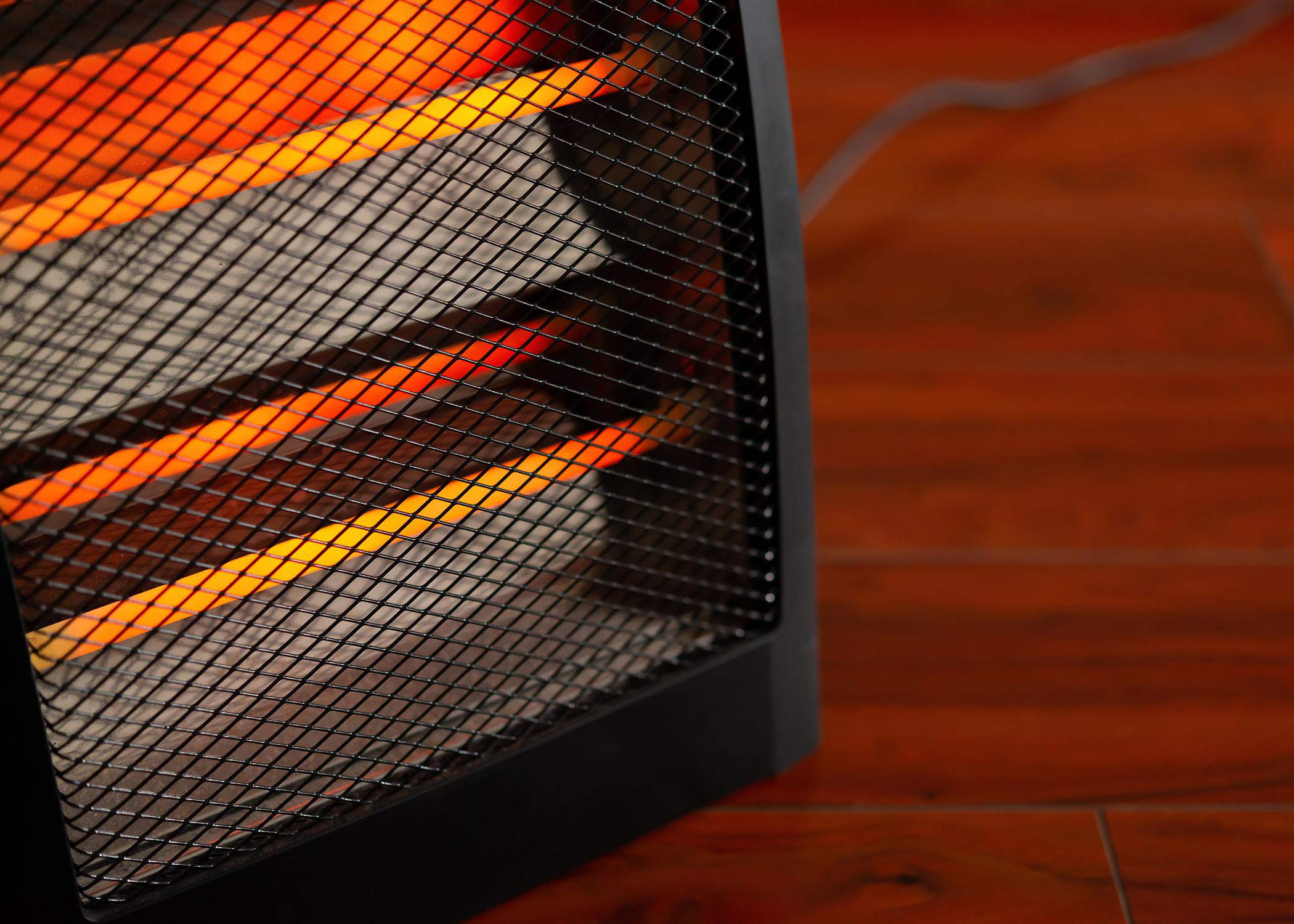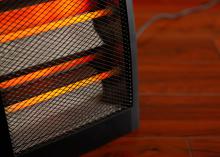Heed safety precautions when using heaters
Editor’s Note: The National Weather Service forecasts an Arctic air mass to move into Mississippi the week of Jan. 20-24. With dangerously cold temperatures and wind chills forecasted, this archived story addresses space heater safety, and the latest edition of the MSU Extension Dawg Tracks Safety Talk monthly newsletter has propane heater safety guidance.
RAYMOND, Miss. -- Space heaters and fireplaces can help keep temperatures comfortable during cold weather. However, all types of heating equipment can be fire hazards if safety precautions are not taken.
According to the National Fire Protection Association, home heating fires happen most often in December, January and February, accounting for almost half of all home heating fires. Heating equipment is the second leading cause of home fires and home fire injuries, and it is the third leading cause of home fire deaths.
“Space heaters and other types of portable heaters are a great way to heat a single room, or supplement a building’s main heating system, or even make outdoor activities more comfortable
when temperatures are colder than normal,” said Leslie Woolington, Mississippi State University Extension Service risk management and loss control manager. “But you need to make sure you use them safely.”
Woolington suggested safety precautions for using an electric, propane or fuel-fired space heater, either indoors or outdoors:
- Keep heaters at least 3 feet away from anything that can burn, including upholstered furniture, bedding, curtains, clothing, insulation, cardboard and papers.
- Never leave heaters on when unattended. Turn heaters off, unplug electric heaters, and turn off portable propane cylinders when leaving the area.
People should take the same precautions with fireplaces. The National Fire Protection Association recommends taking these additional precautions when using any type of heating equipment:
- Ensure children and pets stay 3 feet away from heating equipment.
- Have chimneys and heating equipment cleaned and inspected by a professional once a year.
- Have stationary heaters, water heaters and central heating equipment installed by qualified professionals.
- Always use the fuel specified by the manufacturer for fuel-fired heaters.
- Use a sturdy fireplace screen to keep sparks from flying into the room. Allow ashes to cool before putting them in a metal container. Keep the container a safe distance from the house.
- Test smoke alarms at least once a month.
Mississippi’s Chief Deputy Fire Marshal Connie Dolan said space heaters should only be used as a supplemental source of heat.
“Space heaters are intended only to give your home a little more heat when needed,” Dolan said. “They can easily overload circuits, causing a power failure or fire.”
Dolan pointed out that electric space heaters require a lot of power to run and draw high currents, which is why they should always be plugged directly into a wall outlet.
“Small-gauge, low-quality extension cords cannot handle the high currents that space heaters use,” she said. “Many space heaters draw around 1,500 watts or more and should never be used with an extension cord. The high currents of electricity going through an extension cord can cause the extension cord’s insulation to melt, which could lead to a fire.”
When purchasing an electric space heater, Dolan said consumers should look for units with these features:
- A tip-over safety switch. This switch automatically turns the heater off if it is tipped over.
- An Underwriter’s Laboratory, or UL, mark. This mark is the most common independent safety certification in the U.S. and indicates the device has been tested and approved.
- A thermostat. Thermostats let the user set a temperature and allow the heater to turn off when the desired temperature is reached.
- A long power cord. Make sure the cord is long enough to allow the heater to be a safe distance away from anything combustible.
- A sturdy handle. This allows the heater to be safely moved.
When using a fuel-fired space heater, Dolan offers these safety tips:
- Use fuel intended for indoor use. Never use gasoline. Safe types of fuel are propane, kerosene and natural gas. Always follow the manufacturer’s instructions when filling a heater with fuel.
- Never use an unvented, fuel-fired space heater indoors. These heaters can cause carbon monoxide poisoning, which can lead to death. They can also emit nitrogen oxide, which can cause respiratory problems.
- Use sealed combustion units. These are much safer to operate than other types of fuel-fired space heaters.
- Hire a professional to install vented gas heaters near an outside wall. Have these heaters professionally inspected once a year.
- Install a carbon monoxide detector if using any type of fuel-fired space heater.
For more information about heating safety and other fire safety measures, visit the National Fire Protection Association website at https://bit.ly/2IrQjrk.





